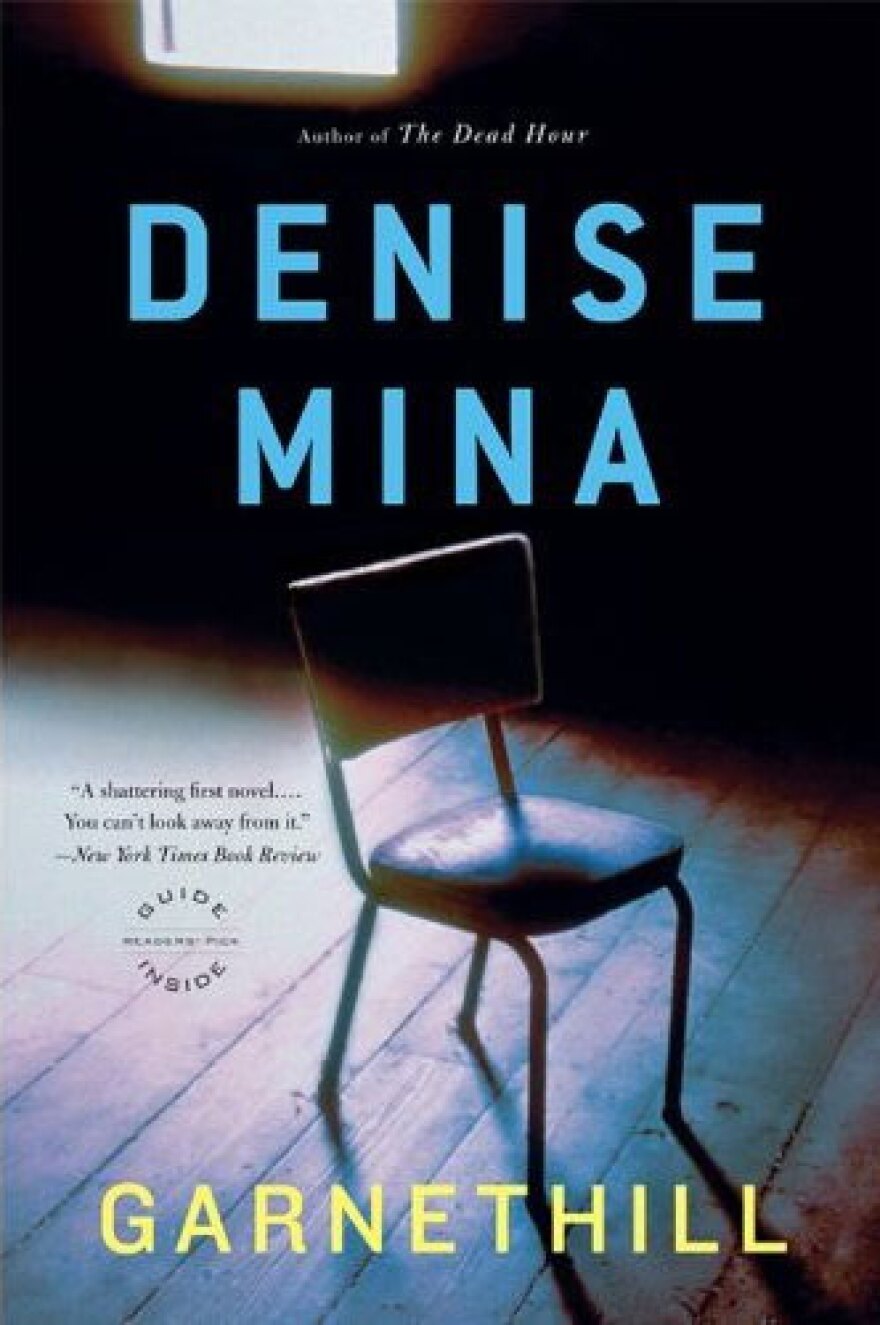In our series Thrilled to Death, suspense writers talk with us about their work, and then recommend the books they love.
Karin Slaughter is a master of the thriller genre; her latest book, Broken, is full of twists and turns and technical details. It revolves around two women: A police detective with a story to hide, and a medical examiner who finds herself drawn into a murder investigation in the town she used to call home.
In the latest installment of our Thrilled to Death series, Slaughter joins NPR's Michele Norris to talk about Broken, and the books and authors that influenced her along the way. You can hear their conversation by clicking the "Listen" link at the top of the page. Below, read Slaughter's recommendation of Denise Mina's Garnethill.

Thriller Recommendation: 'Garnethill' By Denise Mina
By Karin Slaughter
The most enduring stories in literature generally have some kind of crime at their center, whether it's the bloody butchery of Hamlet, the lecherous misanthropes of Dickens or the lone gunman from The Great Gatsby. We would not have the courtroom drama of To Kill a Mockingbird without Mayella Ewell's accusation of rape. We would not have The Lovely Bones if little Susie hadn't been targeted by a pedophile. We would not have Water for Elephants without the brutal death of a sadistic wife-beater. Even Gone With the Wind had a shocking, cold-blooded murder.
In all of these works, violence, or the threat of violence, doesn't just propel the plot; it creates tension, it tests character and, most importantly, it brings conflict that has to be resolved. Pushing the boundaries of polite society does not just fall under the purview of crime fiction authors. Good writers know that crime is an entre into telling a greater story about character. Good crime writing holds up a mirror to the readers and reflects in a darker light the world in which they live.
There isn't a better crime writer today than Denise Mina. Her first novel, Garnethill, began a trilogy of books featuring Maureen O'Donnell, a psychiatric patient and incest survivor. As with many victims of sexual abuse, Maureen has turned her anger inward. At every point in her life, she's chosen the worst path, whether it's becoming sexually involved with the psychiatrist who is supposed to be helping her or self-medicating with alcohol. That she wakes up after a blackout to find her lover violently murdered is just the beginning of the grueling emotional journey she embarks on to find her sanity.
Maureen's volatility is the hallmark of not just a good crime novel, but a good crime novel written by a woman. There is nothing precious about this damaged character. You want to root for her, but you also want to shake her by the shoulders and tell her to snap out of it. The fact that our anti-heroine isn't perfect, that she believably crosses lines that many of us wouldn't think of approaching, opens up a startling dichotomy: everything Maureen has survived has made her want to die. This is a woman's life that you don't often find talked about in contemporary fiction; an awakening where Edna finally remembers how to swim. A battered woman, an abused and self-abusing woman, who doesn't have to die in order for her struggle to have meaning.
In many ways, Mina's writing reminds me of Kathryn Harrison's earlier work -- the childhood exploitations of Thicker Than Water combined with the willful self-destruction of Exposure. Both women write about characters who live in the extremes. Both writers know that the only way to push the boundaries of the craft is to push the boundaries of crime. No matter the genre, this is the legacy to which all good writers should aspire. Violence well-told is a fulcrum for prying the scab off of the human condition.
Thrilled to Death is produced and edited by Ellen Silva with help from Gabe O'Conner, Chelsea Jones and Miriam Krule.
Copyright 2023 NPR. To see more, visit https://www.npr.org.


